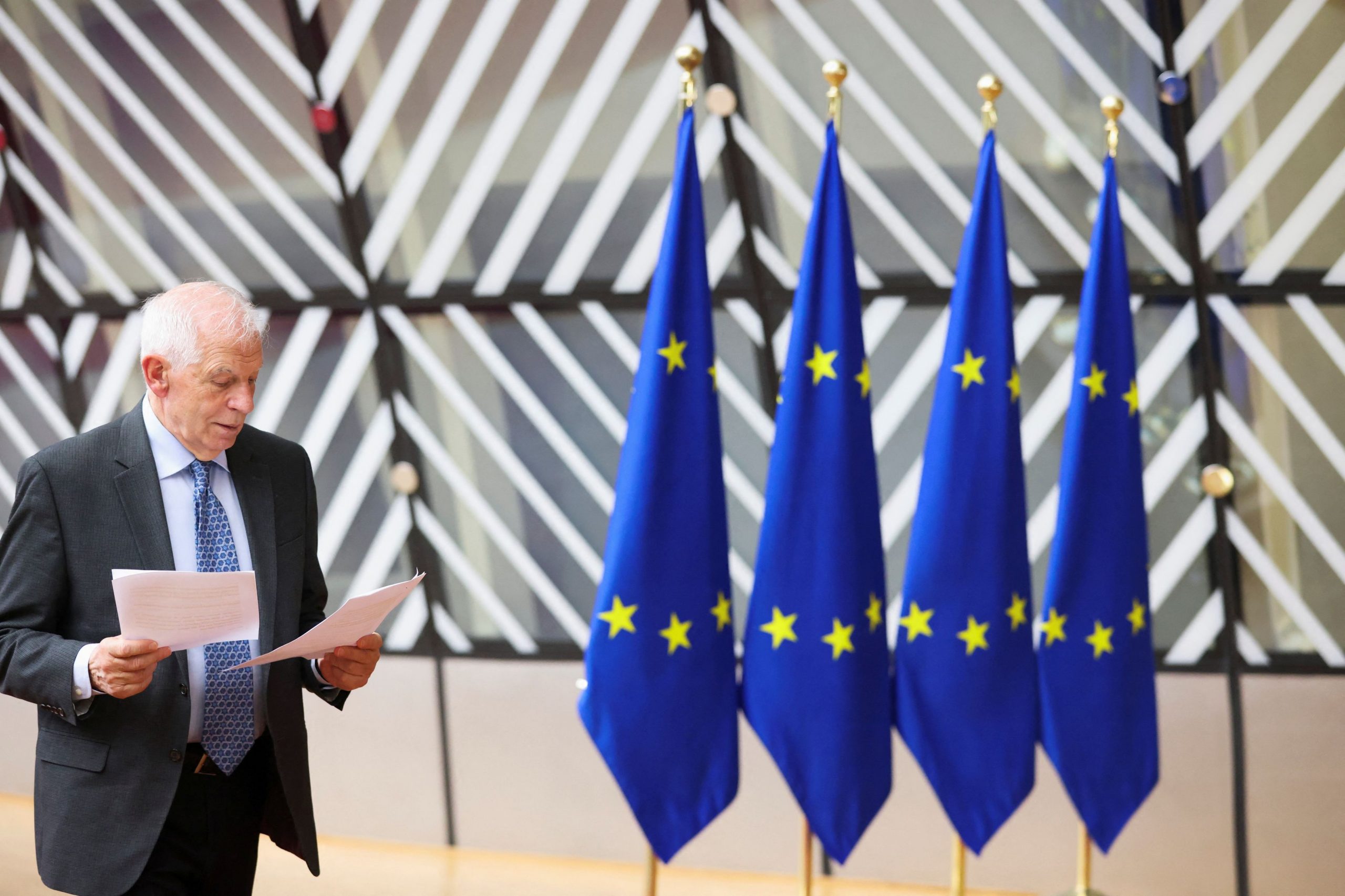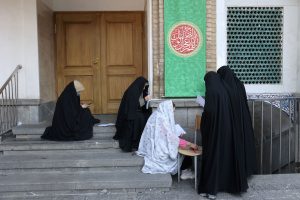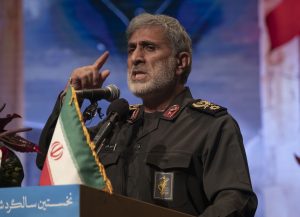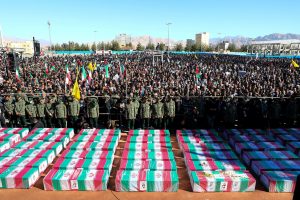The European Union is pushing back against a French-German drive to target Iran with sanctions over its provision of missiles and other military hardware to its regional allies, with senior EU officials saying new sanctions could undercut diplomacy with Tehran.
France, Germany, the Netherlands and five other EU countries wrote last month to EU foreign-policy chief Josep Borrell , saying the bloc should adopt a sanctions regime that allows them to target “Iranian actors which arm, fund, advise and instruct” pro-Iran regional militias, as well as the groups themselves, according to a letter seen by The Wall Street Journal.
Borrell’s response, which EU officials said was backed by Washington: Don’t do it now.
A Biden administration official said they have told the EU they support increasing pressure on Tehran through sanctions on Iran’s transfers of missiles and military equipment to regional militias as well as to Russia.
The dispute, which was raised again at a meeting of EU foreign ministers on Monday, comes days after Europe and the U.S. pledged to swiftly and jointly impose meaningful new sanctions on Tehran if it delivers ballistic missiles to Russia . Western officials said they have no proof that Tehran has yet delivered the missiles but expect it to do so.
EU leaders will pledge at a summit this week to expand targeted sanctions against Iranian individuals and entities if the missile deliveries to Russia proceed, according to a draft of a summit statement.
U.S. officials said the sanctions could include action to stop Iran’s national airline, Iran Air, from flying to Europe. The EU has already targeted Iranian officials and entities for supplying drones and drone technology to the Kremlin.
However EU officials in Brussels have told member states that taking action against Iran over its support for its allies around the Middle East could escalate tensions in the region and undermine nuclear diplomacy.
In a letter to the eight EU member states last week, Borrell said that their proposal to target Iran’s regional destabilizing activities “would conflate the two theaters” of Russia and the Middle East, “which could have potentially unintended consequences.”
“It remains crucial to carefully assess the potential impact of further measures to avoid that the EU’s engagement could be construed as escalation or to jeopardize other important objectives of EU policy such as containing Iran’s nuclear program which is more urgent than ever,” Borrell wrote in a response seen by the Journal.
The EU was the chair of nuclear negotiations with Iran, which concluded in 2015 with a deal that lifted most international sanctions on Tehran in exchange for tight but temporary restrictions on its nuclear work . The U.S. withdrew from that accord in 2018.
Since the Gaza war began in October, Western officials have been engaged with Iran to prevent a regional conflagration. Borrell has been a leading voice in Europe calling for a cease-fire in Gaza and criticizing the Israeli military operation for killing large numbers of civilians.
Given the breadth of Iran’s military support for groups including Hamas, Lebanon’s Hezbollah, the Houthis of Yemen and Iraqi and Syrian militias, adding sanctions on Iran’s regional activities could leave large numbers of state-owned entities and senior Iranian officials exposed. It could potentially lead to Europe reversing some of the sanctions lifted after the nuclear deal—something that EU governments have been reluctant to do.
The EU does have individual sanctions on Iran-backed groups such as Hamas and Hezbollah and has dispatched a naval mission to the Red Sea to help protect commercial shipping from attacks launched by the Houthis. The bloc also decided to maintain EU sanctions on Iranian trade in missiles and other military technology when United Nations sanctions on these activities expired in October under the nuclear deal’s terms.
However, Russia and China, for example, are no longer bound by missile sanctions.
More European countries have been looking for new ways to pressure Tehran after it walked away from diplomatic efforts to revive the 2015 nuclear deal, imprisoned a number of Europeans, backed the Oct. 7 Hamas attack on Israel and expanded its military support for Russia.
The timing is potentially delicate for Washington as well. The U.S. and Iran both appear to be seeking to avoid direct conflict.
While the U.S. military is hitting back against the Houthis and Washington targeted Iranian-backed militias in Syria and Iraq after three U.S. service members were killed in Jordan in late January, the U.S. has resumed indirect talks with Tehran to contain tensions. U.S. officials continue to stress that they seek a diplomatic resolution of Iran’s nuclear buildup.
Secretary of State Antony Blinken , in a letter to Borrell dated Feb. 26, seen by the Journal, asked the EU “to join us in imposing additional sanctions targeting Iranian entities and individuals involved in Iran’s growing military cooperation with Russia, particularly those linked to missile” and drone transfers.
Blinken was unaware of the French and German regional sanctions push when he wrote the letter, a senior U.S. official said.
Behnam Ben Taleblu, a senior fellow at the Foundation for Defense of Democracies, said that the U.S. targeted over 70 Iranian people and entities tied to missile and military-related procurement and proliferation before former President Donald Trump took Washington out of the nuclear deal in 2018 and reimposed sanctions on Tehran. Since then, dozens of designations have been added.
“Targeting Iran’s missile procurement, production and proliferation networks will be the fastest way for Europe to bridge the trans-Atlantic sanctions gap and magnify pressure on Iran,” he said.
Write to Laurence Norman at laurence.norman@wsj.com










